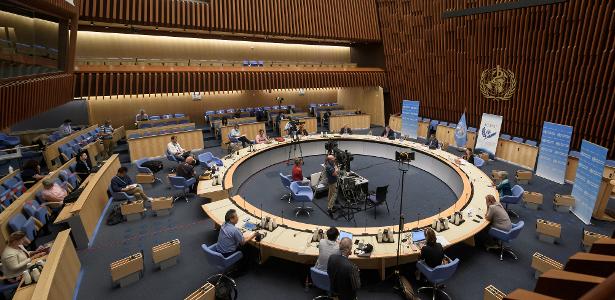WHO: omicron variant may increase chance of reinfection – 11/28/2021
4 min read
In a statement issued on Sunday, the World Health Organization (WHO) noted that studies indicate that the new strain of Covid-19 virus, called omicron, can increase the chance of an already infected person becoming infected again.
However, the WHO alert reveals that scientists and entities are diving in even to try to understand the effects of the new format, prompting governments around the world to ban flights from South Africa.
“Researchers in South Africa and around the world are conducting studies to better understand many aspects of the omicron and will continue to share the results of these studies as they become available.”
Preliminary evidence suggests that there may be an increased risk of reinfection with omicron (that is, people who have already been infected with COVID-19 can more easily become infected with omicron) compared to other variables of concern, but information is limited. “More information on this will be available in the coming days and weeks,” the agency explains.
The world is still unaware of the dangers of a new breed
However, the statement makes it clear that the world is still in a race to try to understand the danger posed by the new strain.
As for the efficacy of vaccines, the organization says it is “working with technical partners to understand the potential impact of this alternative on our current countermeasures, including vaccines.”
“Vaccines remain essential to reduce serious illness and death, including against the dominant circulating virus, Delta. Current vaccines remain effective against serious illness and death,” he says.
The World Health Organization still insists that PCR tests can be “widely used” and “continue to detect infections, including omicron infections. and rapid detection of antigens,” the WHO explains.
Regarding the effectiveness of current treatments, the agency found that “corticosteroids and IL6 receptor blockers will continue to be effective in treating patients with severe COVID-19.”
He notes that “other treatments will be evaluated to see if they are still effective, given changes in parts of the virus in the omicron variant.”
portability
Although governments have stepped up control measures, especially against African regions, the World Health Organization notes that it “remains unclear whether ‘Omicron is more transmissible compared to other variants, including delta'”.
“The number of people testing positive for the virus has increased in areas of southern Africa affected by this variant, but epidemiological studies are underway to understand whether it is due to omicron or other factors,” he says.
It is also not clear whether the variant is more serious. “It remains unclear whether oomicron infection causes more serious disease compared to infection with other variants, including delta,” says the WHO.
“Preliminary data indicate that there are increasing rates of hospitalization in South Africa, but this may be due to an increase in the total number of people infected, rather than as a result of specific omicron infection,” the agency said.
“Currently, there is no information to suggest that symptoms associated with omicron are different from symptoms of other variants,” he says.
The agency acknowledges that “injuries initially reported were among university studies – individuals tend to have milder disease – but understanding the severity level of the omicron variable will take days to several weeks.” However, the World Health Organization insists that all variables, including delta variable Prevalent around the world, it can cause serious illness or death, especially for the most vulnerable, and therefore prevention is always of paramount importance.
The race for the dice
The World Health Organization, in its update on the virus, notes that there is a race for data and that it is coordinating with a large number of researchers around the world to better understand the omicron. Work focuses on assessments of transmissibility, severity of infection, performance of vaccines and diagnostic tests, and efficacy of treatments.
Meanwhile, the agency urges countries to contribute to the collection and exchange of data from patients in hospitals, with the aim of quickly describing clinical characteristics and patient outcomes.
Recommended actions for countries
For now, the World Health Organization is recommending countries to step up surveillance and case sequencing and commit to sharing genome sequences.
He urged “that countries continue to implement effective public health measures to limit the spread of COVID-19 in general, using risk analysis and a science-based approach.” He insists that “some public health and medical capacity must be increased to deal with the increase in the number of cases.”
But the agency insists that the new phase of the crisis shows that “it is critical that disparities in access to COVID-19 vaccines are urgently addressed to ensure that vulnerable groups everywhere, including health workers and the elderly, have access to first and second doses.” , along with equitable access to treatment and diagnosis.
As for individuals, the World Health Organization insists on maintaining a physical distance of at least one meter from others, using an appropriate mask, opening windows to improve ventilation, and avoiding poor ventilation or crowded places; Keeping hands clean and coughing or sneezing. In the elbow or folded tissue.
The World Health Organization is also calling for everyone to be vaccinated.

“Devoted food specialist. General alcohol fanatic. Amateur explorer. Infuriatingly humble social media scholar. Analyst.”




